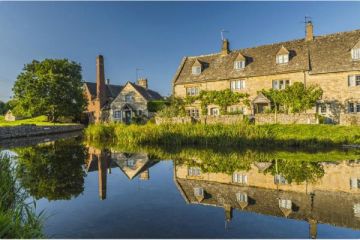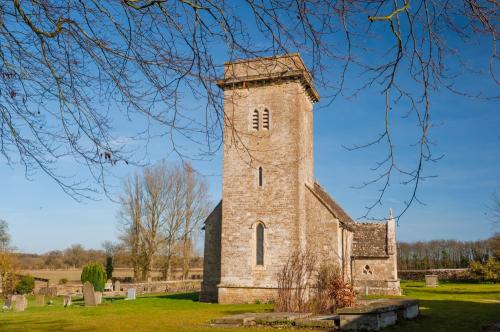
St Mary's Church, Driffield, Gloucestershire (not to be confused with All Saints Church, Driffield in Yorkshire), is a lovely country church showcasing three distinct periods of architecture.
Begun in the 12th century, the church was remodelled in Italianate style in the Georgian period, then remodelled again in Victorian Gothic style in the late 19th century. It is particularly worth visiting for its Victorian stained glass and memorials to generations of the Hanger family, holders of the manor.
History
The Domesday Book of 1086 records a priest at Driffield but there is no mention of a church. It seems likely that the first church on this site was erected in the 12th century, as evidenced by a superb Norman tympanum over the entrance door.
The manor of Driffield fell under the patronage of nearby Cirencester Abbey, including the church and the parsonage across the road.
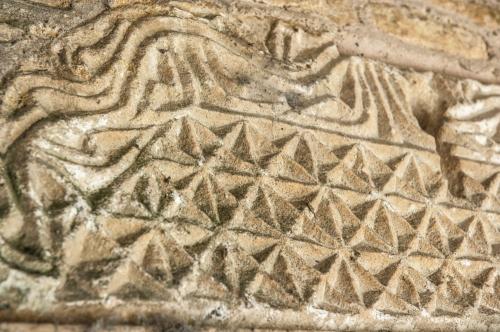
When Cirencester Abbey was suppressed by Henry VIII, the last abbot was given a pension and he retired to Driffield, where he is said to be buried. Henry VIII then granted the manor to Sir Humphrey Brown, one of the judges acting on his behalf.
In 1651 the Driffield manor passed to John Hanger, a shareholder in the Turkey Company, the 16th-century forerunner of the East India Company. The Hanger family held the manor until 1824 and generations of the Hangers are remembered in ornate wall monuments in the chancel.
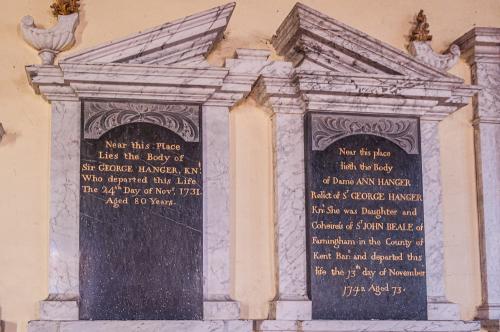
In 1731 Gabriel Hanger, later to become Baron Coleraine, had the medieval church rebuilt in Italianate style and added the striking west tower. His epitaph isn't exactly effusive in praise:
'Here liveth in expectation of the last day, Gabriel Hanger, Lord Coelraine 1773, what manner of man he was that day will disclose'.
Hanger's descendent was George Hanger, an infamous womanizer, soldier, polemicist, and close friend of the Prince Regent. His epitaph is a bit more enthusiastic:
'He lived and died a firm Believer in One God and in One God only. He was also a practical Christian as far as his frail nature did allow him to be so.'
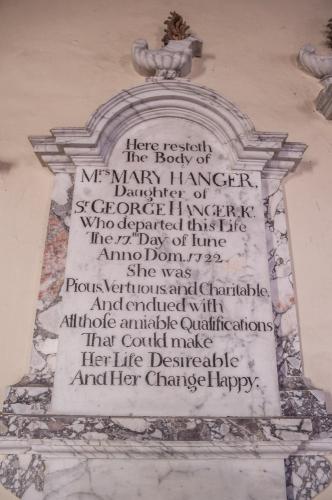
In 1863 the Italianate furnishings were swept away by the Reverend Thomas Maurice, who had the church rebuilt in Victorian Gothic style. Only the pews and the pulpit survive from Gabriel Hanger's 18th-century church. The Victorian restoration may be the work of the famed church architect William Butterworth.
The east window was added by Reverend Maurice to honour Robert Nelson, John Hanger's nephew, who fled the plague in London in 1660 and took refuge with his mother in Driffield.
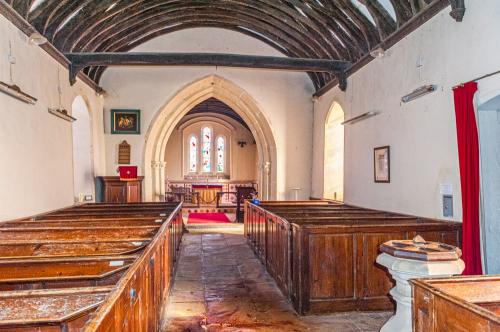
Robert Nelson was an early member of the SPCK (Society for the Promotion of Christian Knowledge), probably the oldest Anglican outreach organisation in the world. When Nelson died in 1714 he left the church a service of communion plate that is still used today.
Over the pulpit is a small royal coat of arms dated to the later years of King George III (1801-1816). Look for a poignant memorial to Vivian Ingram, who died in 1919 at the age of just nine. The epitaph reads, 'Loved by all, she brought happiness wherever she went.'
Relocated to the porch is a gravestone to John Wise, who died in 1652.
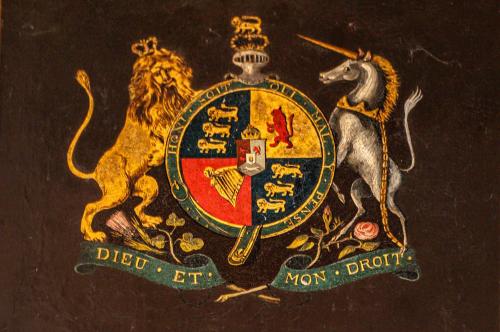
Architectural Features
- Coursed rubble stone construction with quoins to the east
- Stone slate roof with coped verges and cross saddlestones
- Three-stage west tower without offsets or string courses
- Nave and south porch
- Chancel with various window styles, including lancets and Decorated windows
- Braced collar beam roof in both nave and chancel
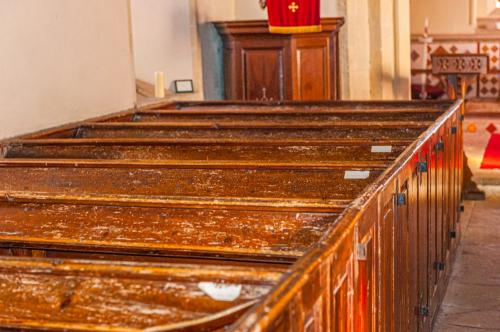
Interior Highlights
- Georgian box pews in the nave
- Creed and Pater boards at the western end
- Marble wall monuments commemorating the Hanger family in the chancel
- Altar surround with 19th-century encaustic tiles
- Stained-glass windows by Alexander Gibbs, circa 1860
Just outside the church grounds is the village war memorial, inscribed with the names of seven local men who died on military service in WWI.
Visiting
The church stands at the northern edge of the village, on the lane to Harnhill. There is limited parking along the road.
About Driffield, St Mary's Church
Address: Harnhill Road,
Driffield,
Cotswolds,
Gloucestershire,
England, GL7 5PY
Attraction Type: Historic Church
Location: At the northern end of Driffield, on the lane to Harnhill. There is limited parking along the road.
Website: Driffield, St Mary's Church
Location
map
OS: SU074997
Photo Credit: David Ross and Britain Express
HERITAGE
 We've 'tagged' this attraction information to help you find related historic attractions and learn more about major time periods mentioned.
We've 'tagged' this attraction information to help you find related historic attractions and learn more about major time periods mentioned.
Historic Time Periods:
Find other attractions tagged with:
12th century (Time Period) - 18th century (Time Period) - 19th century (Time Period) - Georgian (Time Period) - Norman (Architecture) - Victorian (Time Period) -
NEARBY HISTORIC ATTRACTIONS
Heritage Rated from 1- 5 (low to exceptional) on historic interest
Ampney St Mary Church - 1.1 miles (Historic Church) ![]()
Ampney St Peter Church - 1.1 miles (Historic Church) ![]()
Ampney Crucis, Holy Rood Church - 1.5 miles (Historic Church) ![]()
South Cerney, All Hallows Church - 2.1 miles (Historic Church) ![]()
Down Ampney, All Saints Church - 2.5 miles (Historic Church) ![]()
Meysey Hampton, St Mary's Church - 2.6 miles (Historic Church) ![]()
Barnsley House Garden - 3.2 miles (Garden) ![]()
Cirencester Roman Wall - 3.3 miles (Roman Site) ![]()
Nearest Holiday Cottages to Driffield, St Mary's Church:
South Cerney, Gloucestershire
Sleeps: 4
Stay from: £638 - 1946
Cirencester, Gloucestershire
Sleeps: 4
Stay from: £459 - 1577
More self catering near Driffield, St Mary's Church











